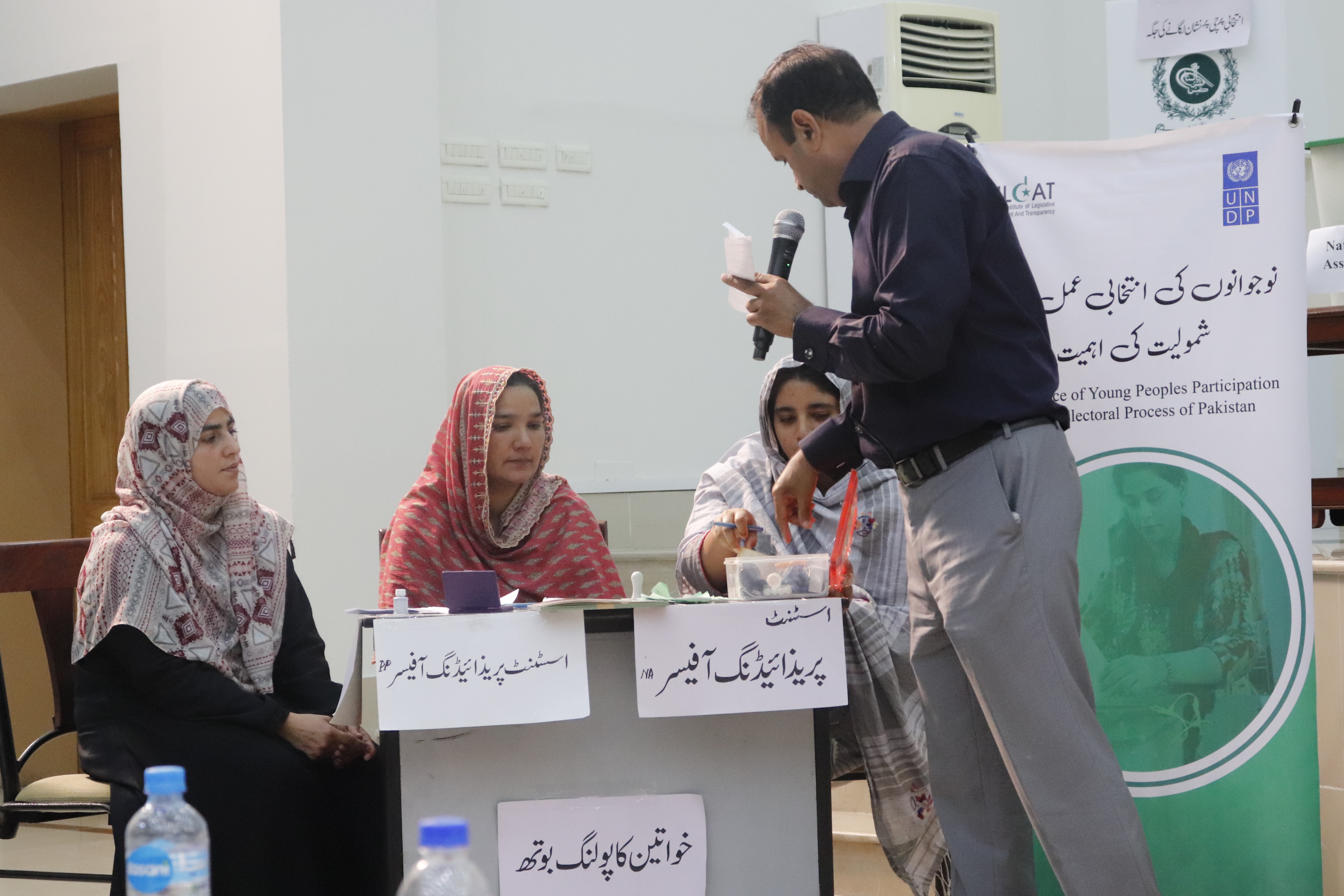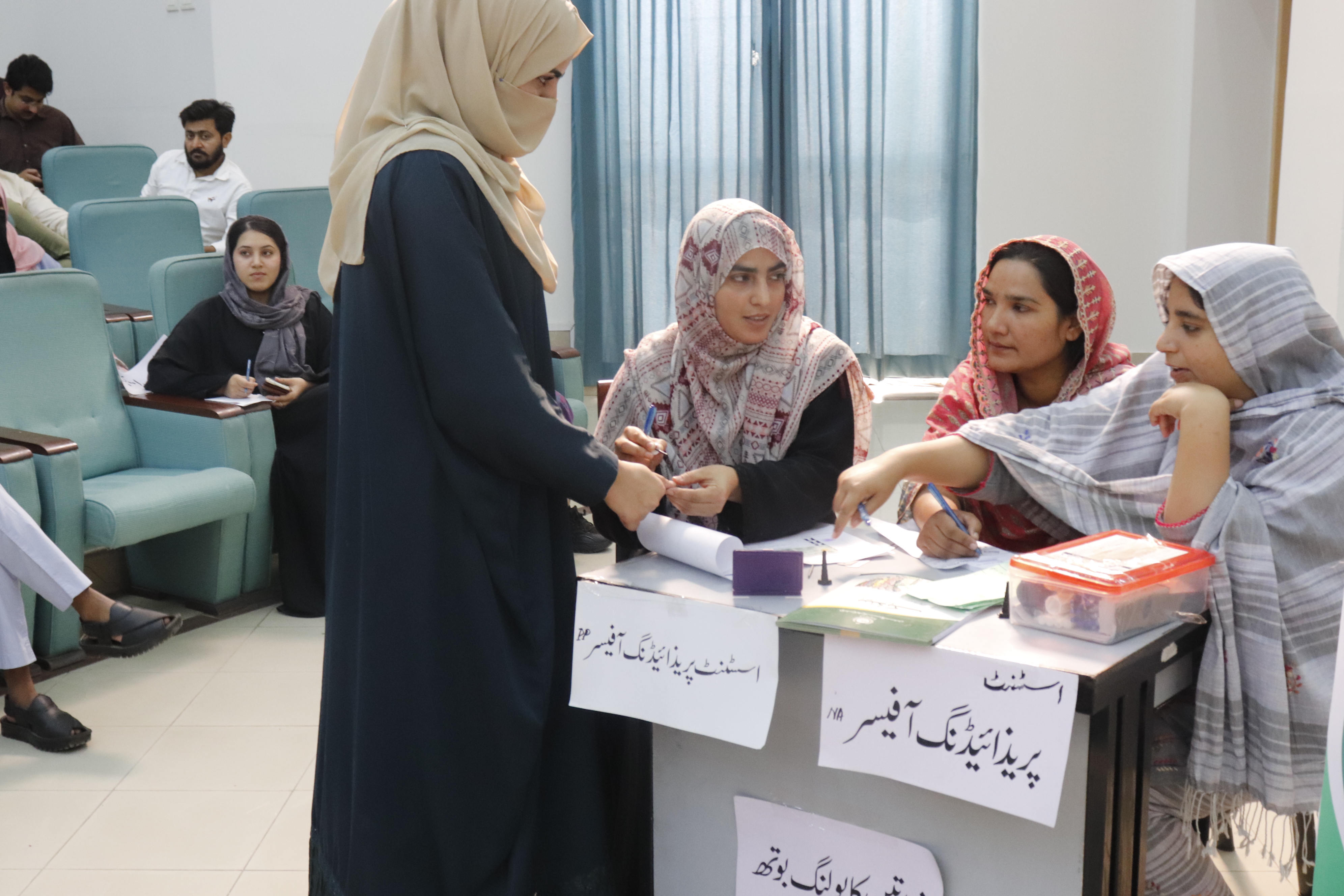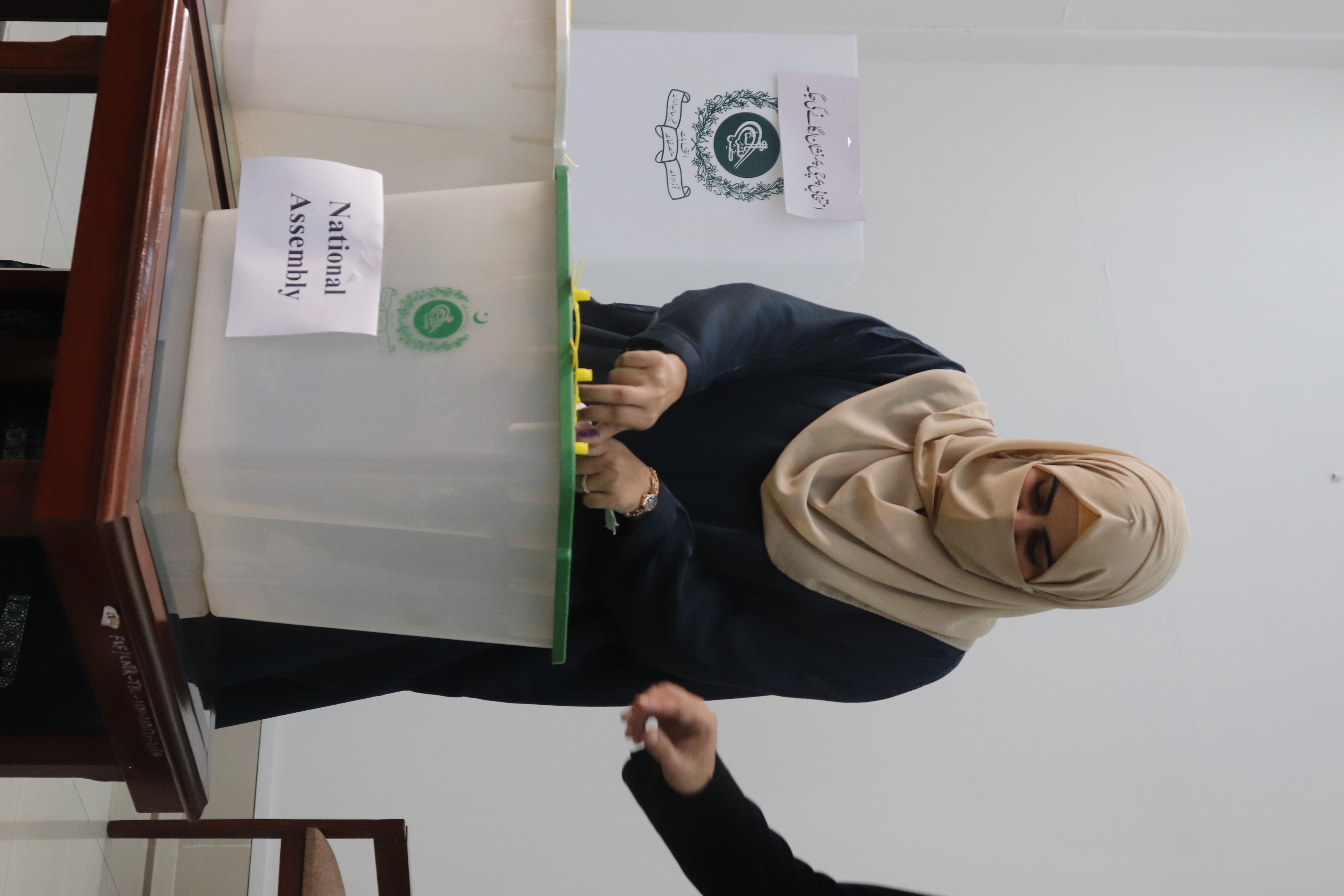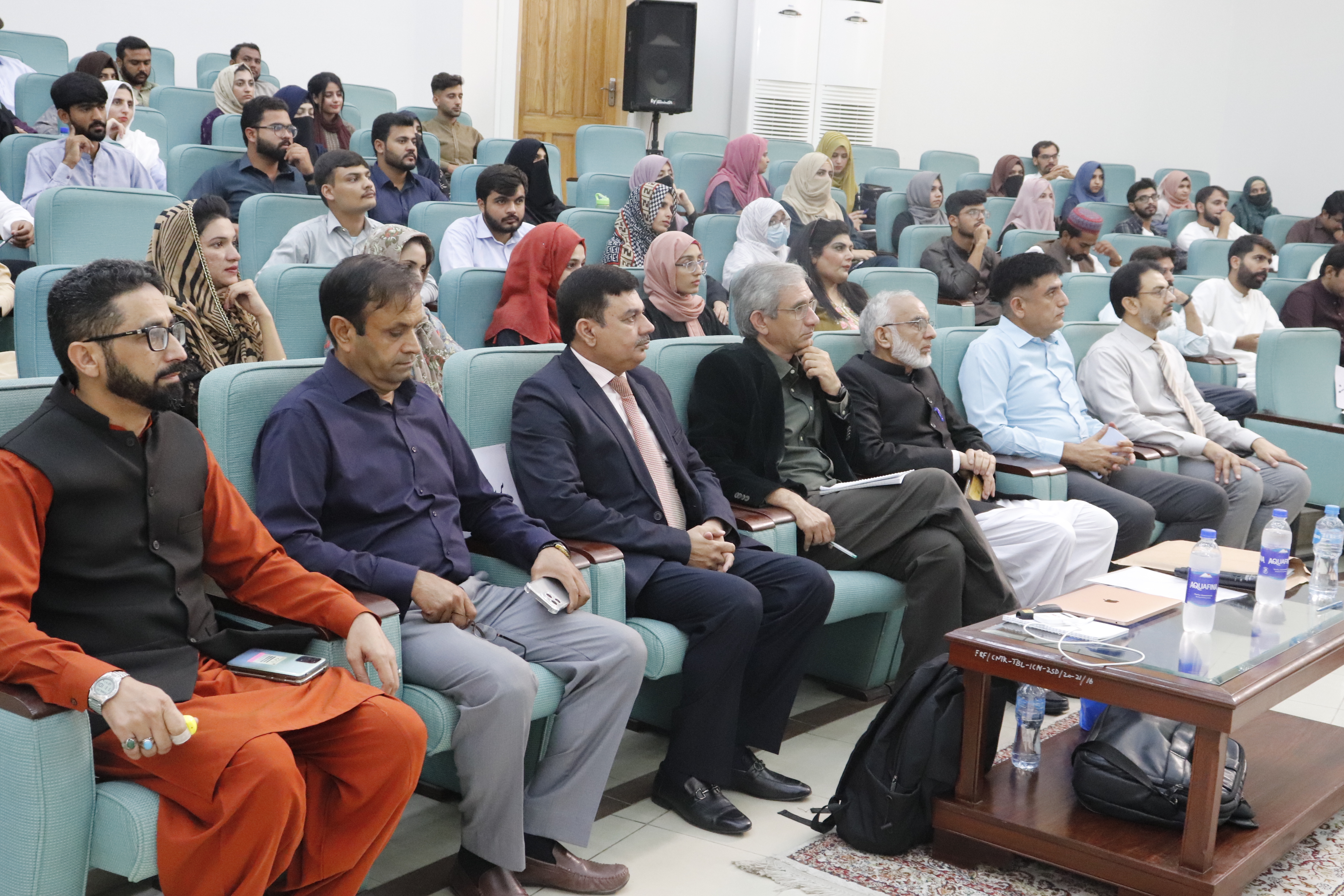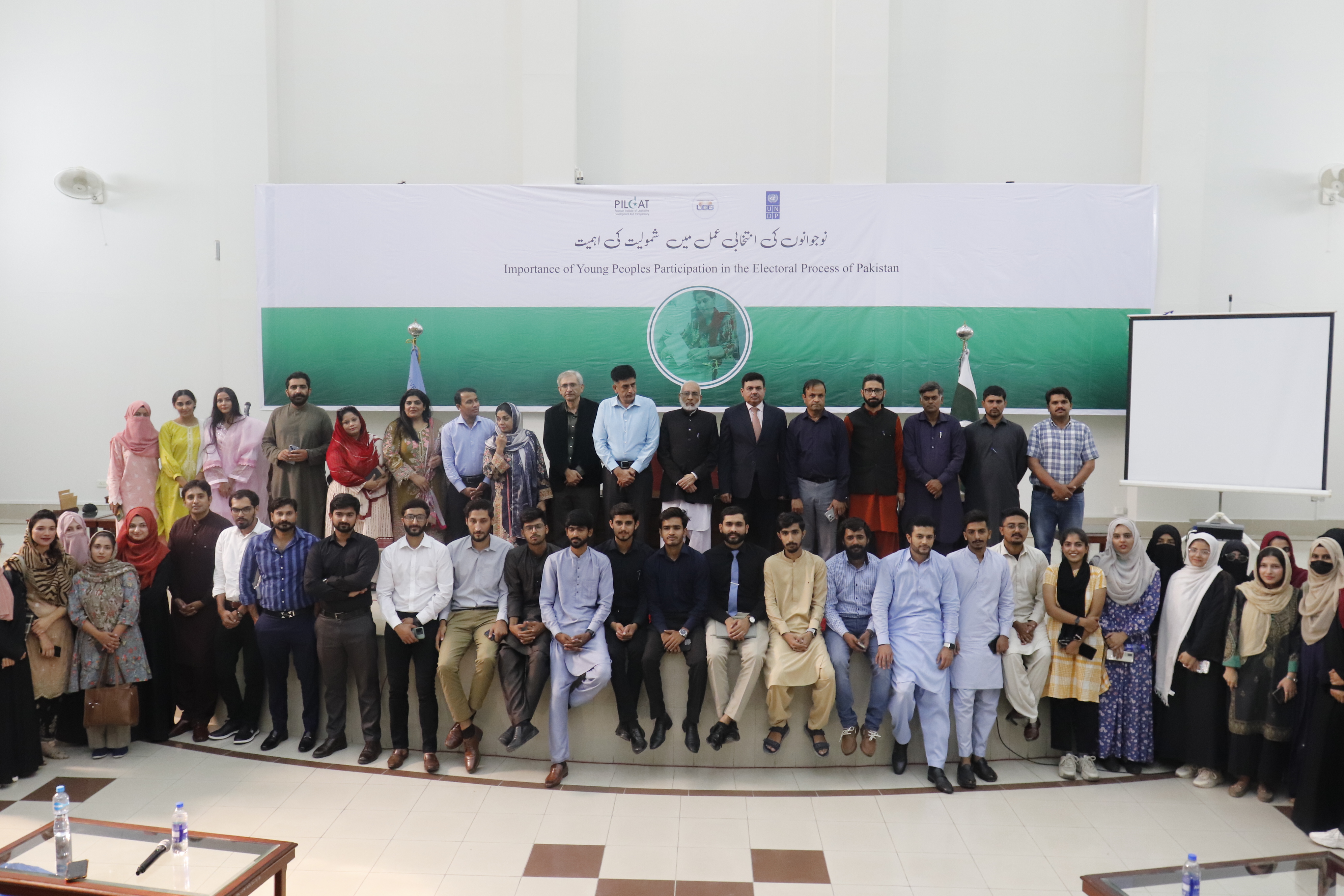
October 31: A consultative session with the students and faculty of the University of Gujrat was held at the Quaid-e-Azam Library Hall in collaboration with UNDP Pakistan. Mr. Abdul Hafeez, Joint Provincial Election Commissioner, Mr. Zahid Subhani, REC Gujrat and Mr. Khalid Mehmood, DEC Gujrat represented the Election Commission of Pakistan (ECP) at the consultative session.
Dr. Adil Rasheed, Director ORIC welcomed the participants and highlighted the importance of the session. Dr. Muhammad Mushtaq, HOD Department of Political Science addressed the students and emphasized the importance of youth participation in the electoral process of Pakistan.
Mr. Faheem Ahmed Khan, Senior Projects Manager PILDAT, introduced the panel members. The panel members included Mr. Abdul Hafeez, Joint Provincial Election Commissioner, Mr. Zahid Subhani, REC Gujrat, Mr. Khalid Mehmood, DEC Gujrat from the ECP. The Youth Representatives included Ms. Arooj Azeem and Mr. Hamid Rasool. The faculty was represented by Dr. Muhammad Mushtaq, HOD Department of Political Science, University of Gujrat.
During his presentation, Mr. Faheem Ahmed Khan, Senior Projects Manager PILDAT discussed the demographic distribution of registered voters in Pakistan, highlighting 45% of the total registered voters belonging to the age group of 18-35 years. Additionally, he provided a comparative analysis of the voting behaviors shown by the young population of Pakistan and India. Notably, the youth voter participation in India surpassed the overall voter turnout seen in the most recent Indian elections. The panelists agreed that low youth voter participation was a genuine problem, not a myth and gave their views on the low youth voter participation.
The youth representatives in their remarks expressed concerns over the electoral process and opined that the governments are chosen elsewhere and the electoral process has no bearing. This has turned the whole exercise of voting in the elections hopeless and the youth is convinced that since their vote does not count they should perhaps stay away from the entire process. They also expressed their dissatisfaction with the conduct of the political parties as in their opinion they failed to give representation to the youth.
Mr. Abdul Hafeez, Joint Provincial Election Commissioner, while responding to the remarks of the youth representatives mentioned that the electoral process was fair and transparent. He emphasized that every vote matters. He further said that if the youth wanted better jobs, better education and a prosperous future they would have to elect their representatives carefully. He urged the youth to look at the manifestos of the political parties and also take into consideration their record in terms of raising the issues of youth before voting for any party. He admitted that the democracy and the democratic system in the country are weak but also said that to make democracy stronger and the electoral system credible the youth should turn out in numbers and exercise their right to vote. He briefly pointed out the voter awareness campaigns that ECP has run in the province. Mr. Hafeez also pointed out that it was not the sole responsibility of the election commission to educate the voters but also a joint responsibility of the political parties and in his opinion the political parties were not making a serious effort to do so. He urged the students that they should carry the message from the consultation session to their communities and convince them to vote. He termed them as agents of change.
Dr. Muhammad Mushtaq, Head of the Department of Political Science, while giving the university perspective acknowledged that the student unions should be revived and HEC should include a course on the constitution of Pakistan and Civic rights and responsibilities in the curriculum.
The session was attended by a total of 152 students out of which 112 (74%) were young women and 40 (26%) were young men.
Following the panel discussion, students enthusiastically took part in a mock polling exercise, actively casting their votes. Their eagerness to experience the democratic process firsthand and engage in meaningful discussions about the topics presented during the panel discussion was evident.
